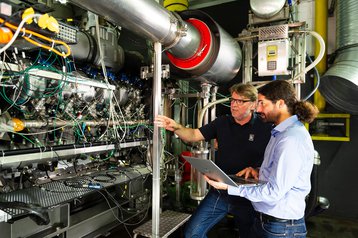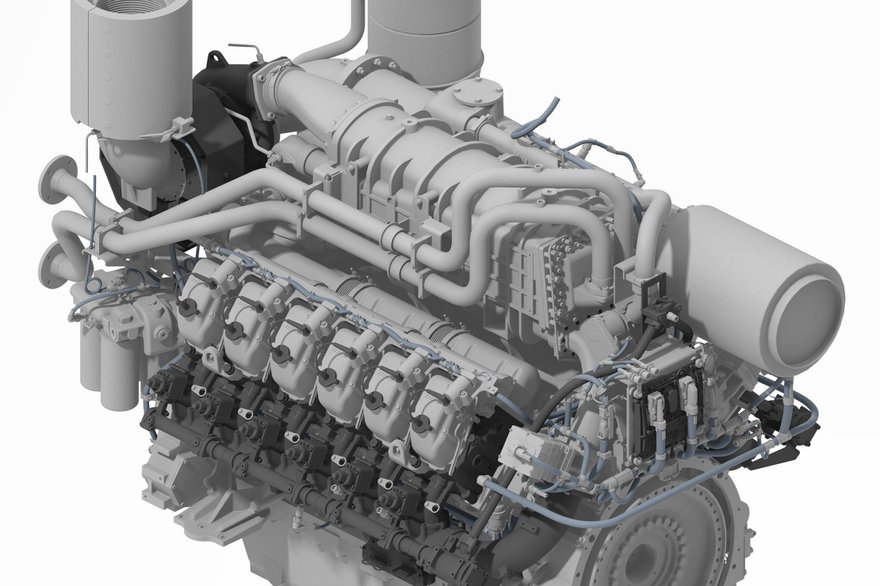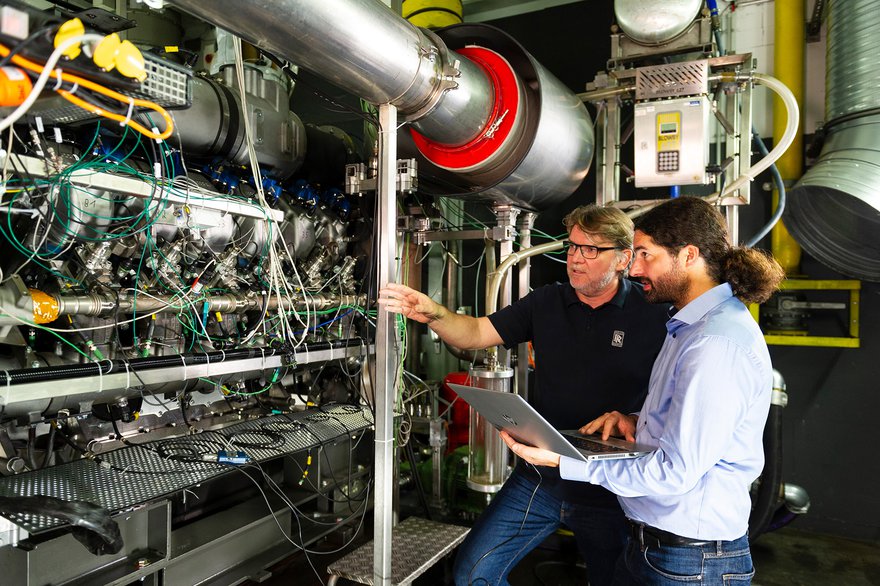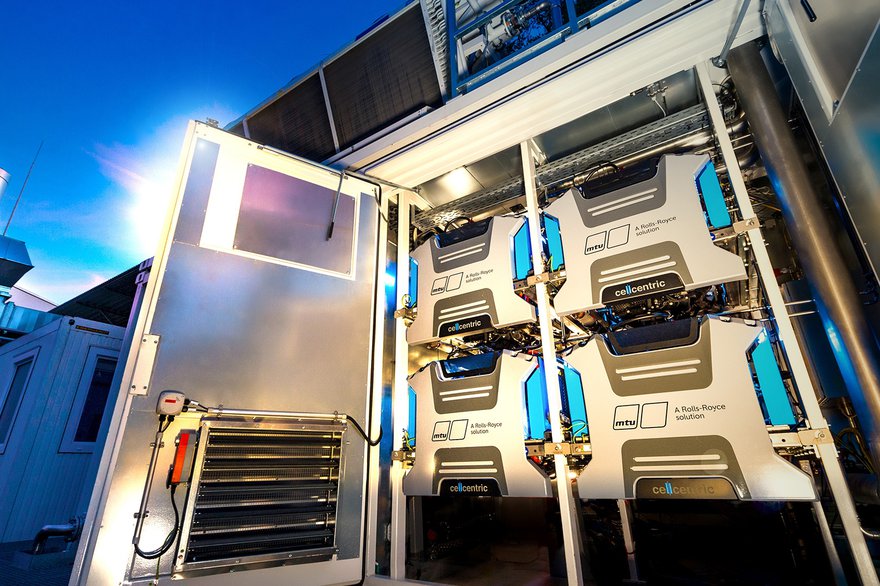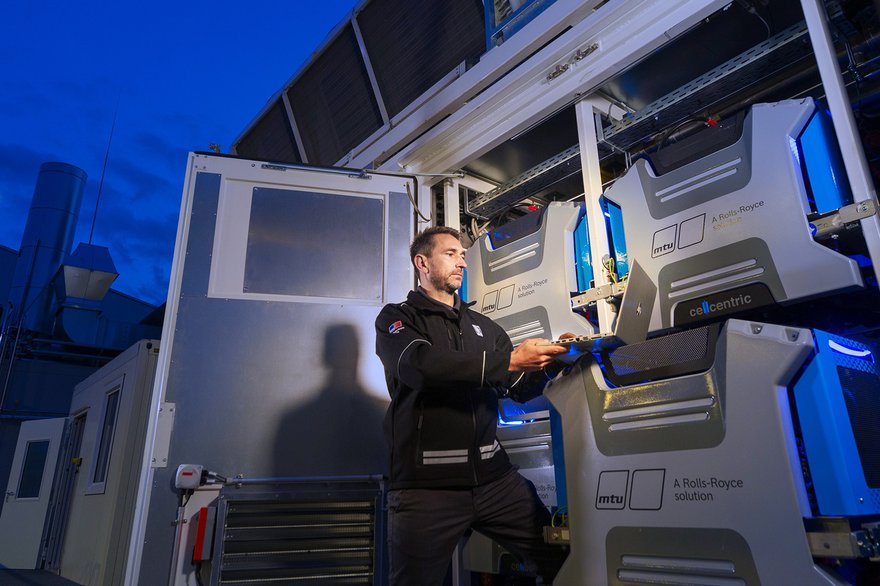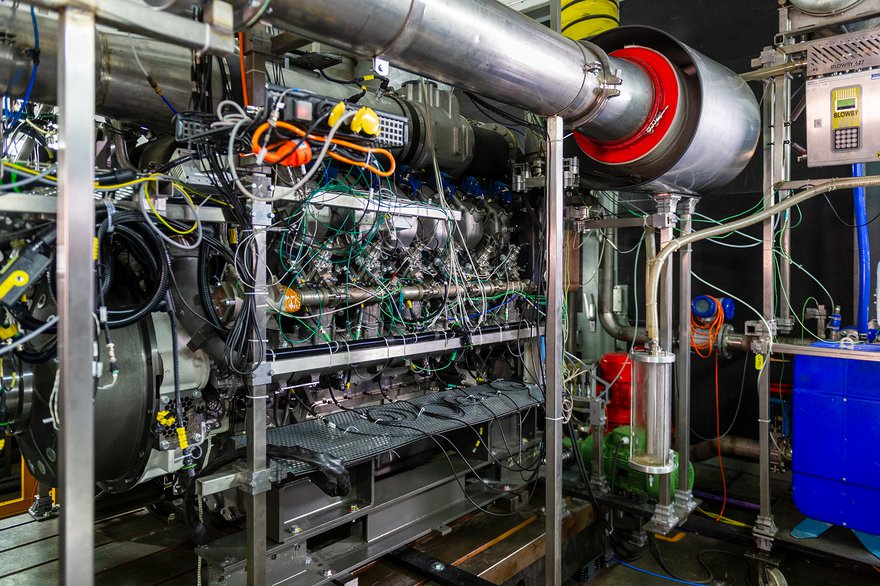Rolls-Royce has built and tested a hydrogen-powered version of its gas generators -which is due to begin shipping to customers in January 2024.
The mtu Series 4000 L64 is a 1MW fully hydrogen-powered version of the mtu Series 4000 L64 engine, which normally runs on natural gas (methane). Although superficially similar, hydrogen and methane have very different physical properties, so Rolls-Royce has been carrying out extensive development at its Power Systems division in Friedrichshafen, Germany, to create a safe and reliable hydrogen engine.
Two of the new gensets are due to be delivered in January 2024 to the inland German port of Duisburg, which will be the site of a carbon-neutral container terminal, enerPort. The new mtu gensets will be used in combined heat and power plants at enerPort, serving a lighthouse.
“enerPort is still a research project, but 2026 is when things get serious,” according to Rolls-Royce engineer Rudi Hoff, quoted on Rolls-Royce's site. "That is when the engines are due to go into full production and become available to all customers."
Hydrogen is an important step towards net-zero, as it represents a high-density energy store, which can replace diesel or other fossil fuels in many applications. For instance, Microsoft in 2022 demonstrated a 3MW fuel-cell backup system powered by hydrogen. In a fully developed hydrogen system, so-called "green hydrogen" can be produced locally by electrolysis, storing surplus energy from renewable sources such as solar cells and wind turbines.
However, existing gas turbines can't work with 100 percent hydrogen, so they must either be fed a mix, that continues to burn mostly methane, or else they must be replaced or upgraded.
Rolls-Royce has modified engine components including the fuel injection, turbocharging, and piston design and control, because hydrogen has different combustion characteristics to natural gas. It has a lower energy density, so more must be used, and the engine needs larger turbochargers. Because it is more flammable than methane, at lower concentrations in the air, the engine must have a lower compression ratio and inject the gas closer to the cylinder. All this requires a different engine management system.
The tests have concentrated on stable operation and low emissions, and have shown that existing gas turbines can be modified using proven parts that are readily available in Rolls-Royce's mtu portfolio. The resulting engines pass emissions tests too, said engineer Andrea Prospero: “We are very pleased with the rapid progress. The very low engine emissions are well below the strict EU limits, no exhaust gas after-treatment is required."
"One of the biggest challenges is the properties of hydrogen," Prospero said in a video (translated from German). "Compared to natural gas, hydrogen has a much lower energy density, which means I have to put a much large volume into the ignition chamber in one power stroke. On the other hand, hydrogen has the property that it ignites in a much wider concentration range, which means I have to work with a much larger volume of air - but that in turn gives me the opportunity to reduce my nitrogen oxides."
For anyone who doubts that hydrogen is the new rock and roll, enjoy Hoff and Prospero in this video from Rolls-Royce. The soundtrack, by Rockin' for Decades, is called Make Me Crash.

